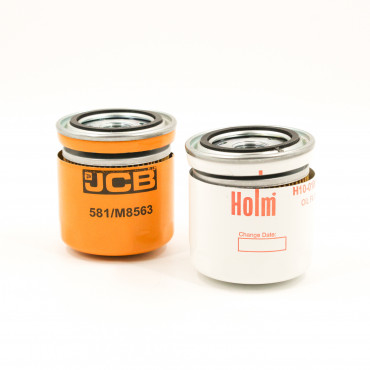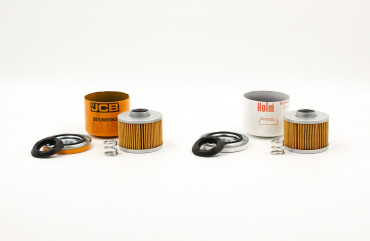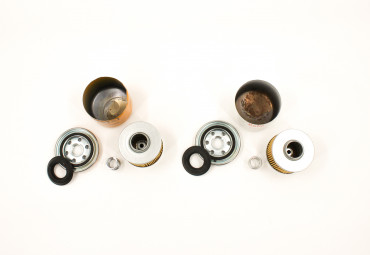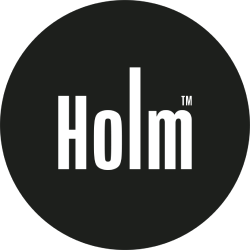Will Fitting a 'Non-Genuine' Filter Affect My Equipment’s Warranty?
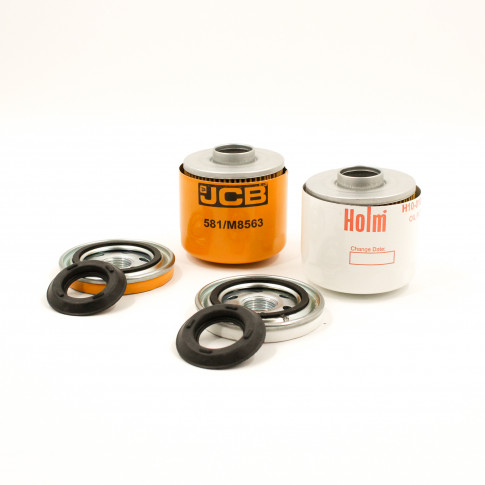
A common worry for many owners of plant and construction machinery is: “What will happen to my warranty if I fit a non-genuine filter to my piece of equipment?”
To understand the implications, it would be helpful to look into the following first:
- OEM and OES Meanings
- EU Block Exemption
To you help you understand better, we will be explaining these here and summarise our findings later in the article.
What is OEM and OES?
You’re probably already familiar with the term OEM or Original Equipment Manufacturer, but not everyone is so familiar with the term OES, which stands for Original Equipment Supplier. Consider OE manufacturers in the Construction and Plant machinery industry as typically brands such as JCB, Caterpillar, Komatsu, Kubota, Takeuchi, Mecalec, Thwaites, Wacker, etc. They all have production lines assembling parts together which are all designed and supplied to their own design and specification.
The OE Suppliers are then key to the OEM. There are some ‘exclusive’ Original parts manufacturers although in practise, most of the OE Suppliers produce parts for many different manufacturers and brands. Currently, the OES supply chain is being disrupted and capacity is being stretched causing severe delays for the OEM to produce equipment. It appears that in these circumstances the OEM is getting preferential supply leading to shortages of spare parts in the aftermarket supply chain.
It is important therefore that any parts, including filters, are manufactured according to the OEM specification. These then can be sourced either under the OEM brand – typically via their dealer network – or in many cases, under a quality or alternative brand manufactured by the OES to the OEM specification.
It makes sense that the original brand comes with a price tag because the confidence of fitting a spare part with the brand name associated shows that a higher price can be charged. The reality is that regardless of the brand of the filter or spare part that has been fitted, the manufacturer’s warranty cannot be legally disputed as long as it was made to OEM specifications by either the OES or an alternative supplier. Certain manufacturers speak about policy but legal ability to void a warranty because a non-branded spare part has been used is potentially false.
Dual Branding is common among the aftermarket suppliers. Many OE Suppliers offer spare parts, including their own brand, to the aftermarket. They do this in parallel with supply of branded products to the OEM. This is a practice known as “double branding”.
There are some instances where an OEM may have rights to a tool or mould and in this case, through patent and IP protection, spare parts can only be supplied to the OEM or its dealer network. These are known as “Captive Parts”.
“Spurious Parts”, on the other hand, is another term often used for non-genuine spare parts. As explained above there is a big difference between an OES supplied spare part and a ‘Spurious’ part. There is a long discussion about the import of copy parts predominantly from the Far East. Often, the specifications of these are hard to manage and these are best avoided as it would be far more likely to fail the test when it comes to a specification challenge, leaving any warranty claim potentially void.
The 2010 Vertical Block Exemption Regulation
In broad terms the block exemption regulations (BERS), sometimes referred to as Anti Competition Regulations, are in place to protect the consumer from being dictated to by the manufacturers.
Following the former block exemption regulation 1400/2002, the new competition law framework confirmed that vehicle manufacturers may not stop their OES or Original Equipment Suppliers from also supplying their products, as spare parts to independent distributors, or directly to independent or authorised repairers, unless they are a “Captive Part”.
“Original parts or equipment” are parts or equipment that are manufactured according to the specifications and production requirements, or standards issued by the OEM for the production of parts or equipment for the assembly of its vehicles. This means that original parts, if they fulfil the above conditions may be:
- Parts produced in house by vehicle manufacturers.
- Parts manufactured by parts producers which are supplied to the OEM for the assembly of vehicles or for the distribution to the members of their authorised networks.
- Parts manufactured by independent parts producers which are just supplied to the independent aftermarket providing that they are manufactured according to the vehicle manufacturers specification
Will Fitting a Non-Genuine Filter Affect Equipment Warranty?
To summarise, if a spare part that has been fitted to a vehicle which has been produced to the same specification (or higher) set by the OEM or Original Equipment Manufacturer, then there is no basis for a manufacturer (OEM) to withhold warranty on the vehicle.
Avoid the temptation to fit cheaper imported spare parts that aren’t produced by OE suppliers.
Where to Find OEM Quality Filters?
At Holm, we provide all the filters you need to replace your original equipment parts. We specialise in high quality filters of all types for construction and agricultural equipment. We offer Holm-branded or OEM air filters, fuel filters, oil filters hydraulic filters, cabin filters, and so much more.
Fitting Holm-branded filters for your plant and construction machinery will not affect, in any way, the warranty of your equipment. You can be 100% confident that products produced by Holm are manufactured according to exacting standards.
Need more information?
- For more information about the Holm Filters Parts & Labour Guarantee please click here.
- Use our Filter Finder to easily find and order all the filters and filter kits you need.
- If you would like to speak to one of our knowledgeable filter experts about our range, please contact us.
